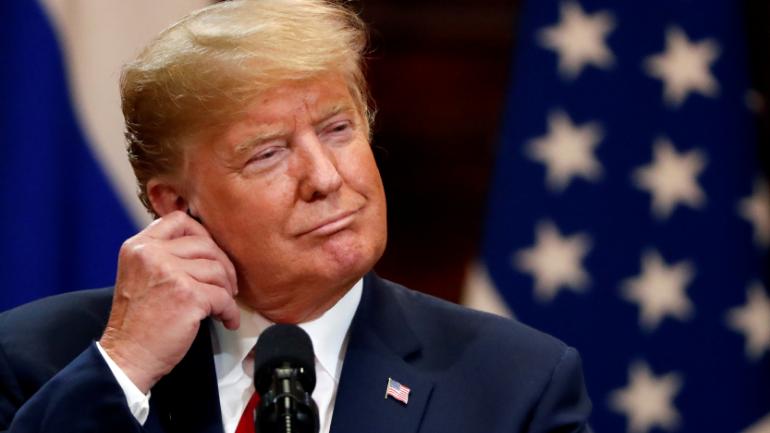U s President Donald Trump on Thursday abruptly canceled a planned meeting with Russian President Vladimir Putin in Argentina, registering his disapproval of Russia’s treatment of Ukraine and casting new uncertainty over US-Russian ties.
“Based on the fact that the ships and sailors have not been returned to Ukraine from Russia, I have decided it would be best for all parties concerned to cancel my previously scheduled meeting in Argentina with President Vladimir Putin. I look forward to a meaningful Summit again as soon as this situation is resolved!” Trump tweeted.
Trump’s tweet from aboard Air Force One shortly after takeoff from Washington on the way to Buenos Aires for a Group of 20 summit, was a sudden turnaround.
Roughly an hour earlier, he had told reporters he would probably meet with Putin at the summit and said it was “a very good time to have the meeting”.
Trump had also said he would get a final report during the flight to Argentina on the tension in the region after Russia seized Ukrainian vessels near Crimea on Sunday.
Ukrainian President Petro Poroshenko on Thursday accused Putin of wanting to annex his entire country and called for NATO to deploy warships to a sea shared by the two nations.
While it was unclear why there was a sudden change in plans for a meeting, holding talks with Putin now could represent bad optics for the White House at a time when the president is under scrutiny over prior plans to build a Trump Tower in Moscow.
Trump’s former personal lawyer Michael Cohen pleaded guilty on Thursday to lying to Congress about the proposed Trump Organization skyscraper in Moscow, prompting Trump to lash out at Cohen as a “liar” and “weak person”.
White House spokeswoman Sarah Sanders told reporters on the presidential aircraft that Trump made the decision not to meet Putin after speaking with Secretary of State Mike Pompeo, White House chief of staff John Kelly and national security adviser John Bolton.
The decision appeared to catch the Kremlin by surprise. The Kremlin’s spokesman said Moscow had no official information on Trump’s decision, and that if true, Putin would have some extra time for a useful meeting at the G20 summit.
Differences over Ukraine, as well as Moscow’s role in the civil war in Syria, have been an irritant in US-Russian relations for years.
The administration of former President Barack Obama imposed sanctions on Russia for its annexation of Crimea from Ukraine in 2014. That in part brought ties between Washington and Moscow to their lowest point since the end of the Cold War.
Since then, the United States has investigated Russia’s possible interference in the 2016 presidential election that Trump won. Russia has denied meddling and Trump has repeatedly said there was no collusion.
Russia seized three Ukrainian navy ships and their crews on Sunday near Crimea over what it said was their illegal entry into Russian waters, which Ukraine denies.
Some of Ukraine’s Western allies have raised the possibility of imposing new sanctions on Russia over the episode, which could deliver a blow to the Russian economy.
Kiev is aiming to gain Western support for more economic sanctions against Moscow, secure tangible Western military help, and rally opposition to a Russian gas pipeline that threatens to deprive Ukraine of important transit revenue.








